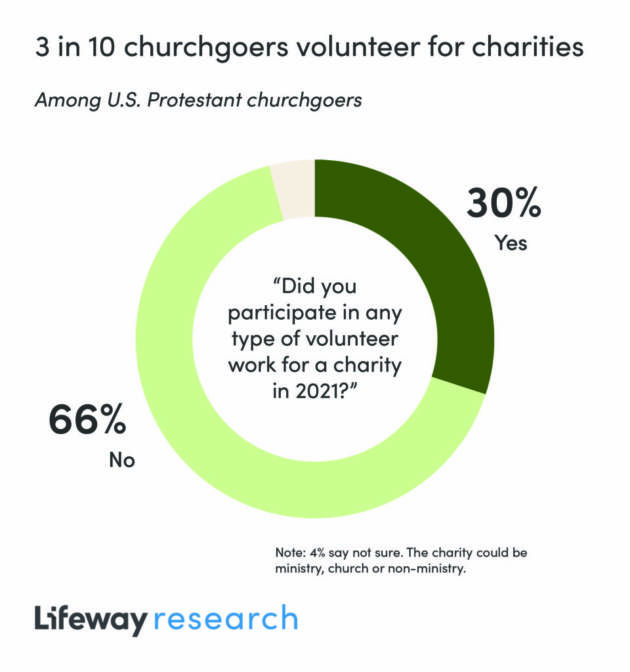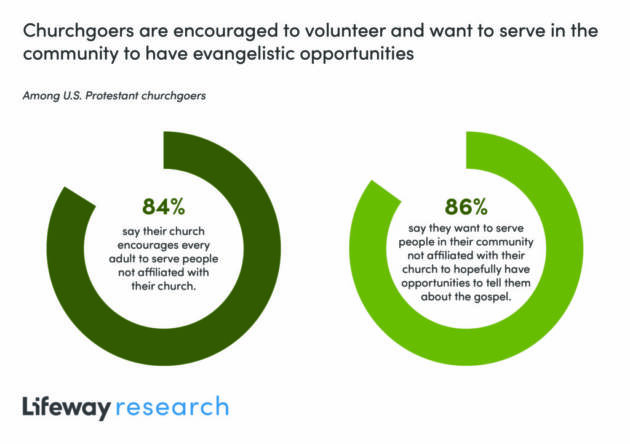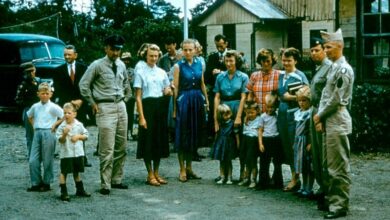Despite good intentions, most churchgoers fall short in volunteering
When all is said and done, there often is more said than done. Despite good intentions, most churchgoers don’t follow through on volunteer opportunities.
Most Protestant churchgoers say their churches encourage them to serve people not affiliated with their church and that they want to do so, according to a new study from Lifeway Research. But few have volunteered in the past year. More than four in five churchgoers say their churches encourage every adult to serve people outside their church and they want to serve these people in hopes of sharing the gospel.
Despite saying they want to serve people who are not a part of their church, few churchgoers are serving even within the context of their own churches. Two in three churchgoers say they have not volunteered for a charity (ministry, church or non-ministry) in the previous year. Thirty percent say they have, and 4 percent are not sure.
“The easiest way to serve others is when a charity or group organizes the effort,” said Scott McConnell, executive director of Lifeway Research. “They recognize the need, come up with a plan and often gather needed resources. You just have to show up. Churchgoers say they want to, but less than a third showed up to help a charity in the previous year.”
In another 2022 Lifeway Research study, Protestant pastors said churchgoers were more likely to serve in the church than in the community. Pastors estimated that, on average, 42 percent of their adult churchgoers were involved with regular responsibilities at their churches. And pastors estimated an average of 27 percent of adult churchgoers were involved in serving in the community.
Although younger churchgoers are more likely to say they want to serve people in their community who are not affiliated with their church, the oldest churchgoers (those over the age of 65) are the most likely to say they participated in any type of volunteer work in the previous year.
“This study did not measure service churchgoers may have done individually for their neighbors,” McConnell said. “Meeting such needs as they arise is a great form of service. But some of the most widespread needs in communities require volunteers working together, something that the majority of churchgoers don’t do over the course of a year.”
–Lee Hartman | Metro Voice










